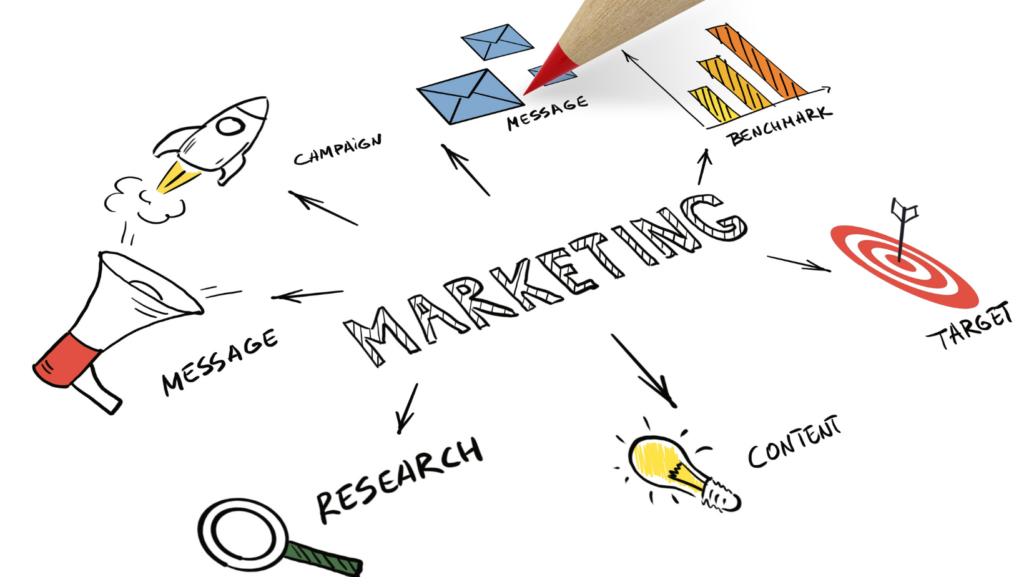In the high-stakes world of sports and events marketing, brands are constantly jockeying for position. They’re seeking that perfect play that’ll propel them into the hearts and minds of fans around the globe. It’s a thrilling, fast-paced field where creativity meets strategy, and the rewards can be monumental.
From Super Bowl commercials to Olympic sponsorships, sports and events marketing is a game-changer. It’s a platform where brands can showcase their values, connect with audiences on a deeper level, and ultimately, score big. So, let’s dive into this dynamic world and discover the strategies that make sports and events marketing a winning play.
Sports and Events Marketing

Delving into the concept of sports and events marketing gives us insights into an intricate blend of creativity, strategy, and fan engagement. Mastering this craft translates into unprecedented success for brands, proving it’s depth and importance in today’s marketing ecosystem.
Strategic marketing finds its significance in sports and events as it operates as the engine driving successful campaigns forward. It offers a pinpoint road-map leading to desired outcomes, including brand visibility, fan engagement, and significant returns on investment. For example, Nike’s ‘Just Do It’ campaign leveraged strategic marketing to catapult the brand to global fame, allowing the company to resonate deeply with the audience, thereby retaining their loyalty.
The Significance of Sports Trophies in Marketing
Few symbols in sports hold the power to captivate audiences like sports trophies. Representing the pinnacle of achievement, iconic awards such as the FIFA World Cup or the Stanley Cup evoke intense emotions and lifelong memories for fans and players alike. These trophies offer marketers unique opportunities to build brand narratives tied to excellence, legacy, and perseverance. Whether through sponsorships, merchandise, or interactive fan experiences, brands that leverage the prestige and emotional pull of trophies can create campaigns that resonate deeply. By aligning with these revered symbols, brands cement their place not only in the competitive landscape but also in the hearts of their target audiences
Key Components of Successful Sports and Events Marketing

The crux of successful sports and events marketing lies in its key components. These components, ranging from understanding the target audience to exploiting digital platforms, form the base of any winning marketing strategy.
A precise overview of the target audience provides a foundation for the marketing strategy. Balance, it’s essential to segment the audience based on sectors such as demographics, psychographics, and behavioral aspects. The Puma RS-Computer shoe, introduced specifically for tech-savvy sports enthusiasts, exemplifies effective market segmentation in action.
The Role of Public Relations in Sports and Events Marketing
Public relations (PR) bolsters sports and events marketing in multifaceted ways. Its command lies in building relationships and promoting targeted branding narratives.
Influencer Marketing and Celebrity Endorsements
Influencer marketing and celebrity endorsements operate as powerful PR tools in sports and events marketing. Celebrities, as influencers, offer vast social media following, enhancing brands’ reach. A fitting instance is Under Armour’s partnership with basketball icon Stephen Curry. This collaboration has amplified brand recognition and fan engagement, demonstrating the might of celebrity influence in marketing strategies.
Press and Media Coverage
Press and media coverage propels visibility in sports and events marketing. PR involves organizing press conferences, arranging media interviews, and circulating press releases. These activities generate buzz around events and participants, building public interest. The Tour de France, for instance, garners global media attention annually. This coverage not only raises the event’s profile but also benefits sponsors and teams, attesting to the significance of press and media relations.
Creating a Resilient Sports and Events Marketing Strategy

Sports and events marketing evolves with shifts in societal trends and market dynamics. Crafting a resilient strategy taps into these changes, incorporating sustainability and adapting constantly.
Sustainability, a hot-button issue, roots strongly within sports and events marketing strategies. Commitments to eco-friendly practices resonate well with modern consumers, often driving higher rates of engagement and brand loyalty. Witness the 2020 Super Bowl LIV, where the NFL crafted a comprehensive Sustainability Plan. It included initiatives like robust recycling programs and community greening projects, proving a hit with viewers.
Change dictates the realm of sports and events marketing. Rapid shifts in technology, consumer behavior, and market trends require marketers to be agile, adapting strategies to remain relevant. For instance, the sudden emergence of eSports required marketers to tailor their strategies for a previously untapped audience. Fortnite’s collaboration with Marvel, creating themed events centered around popular characters, is a quintessential example, providing a fresh, engaging twist to virtual sports marketing.



